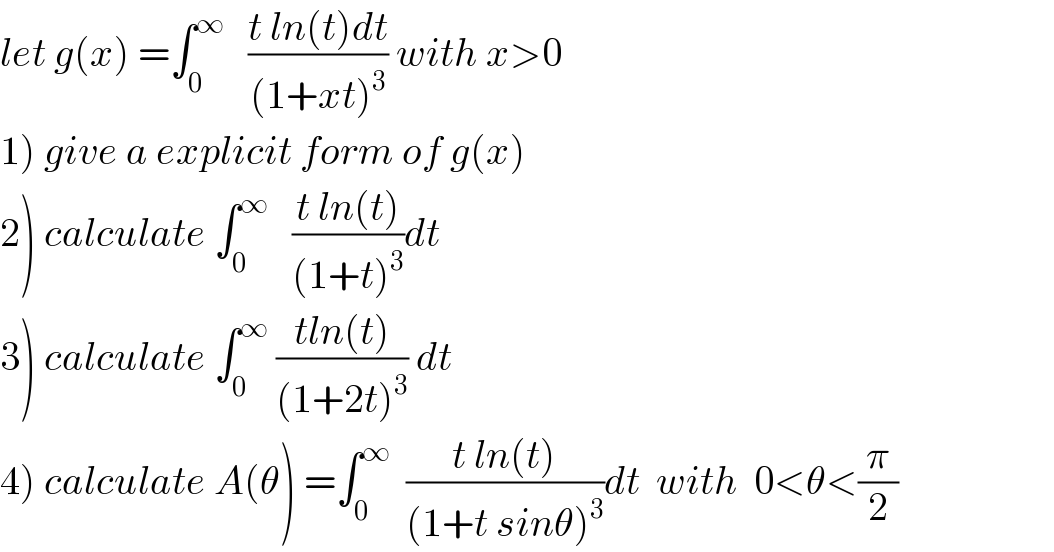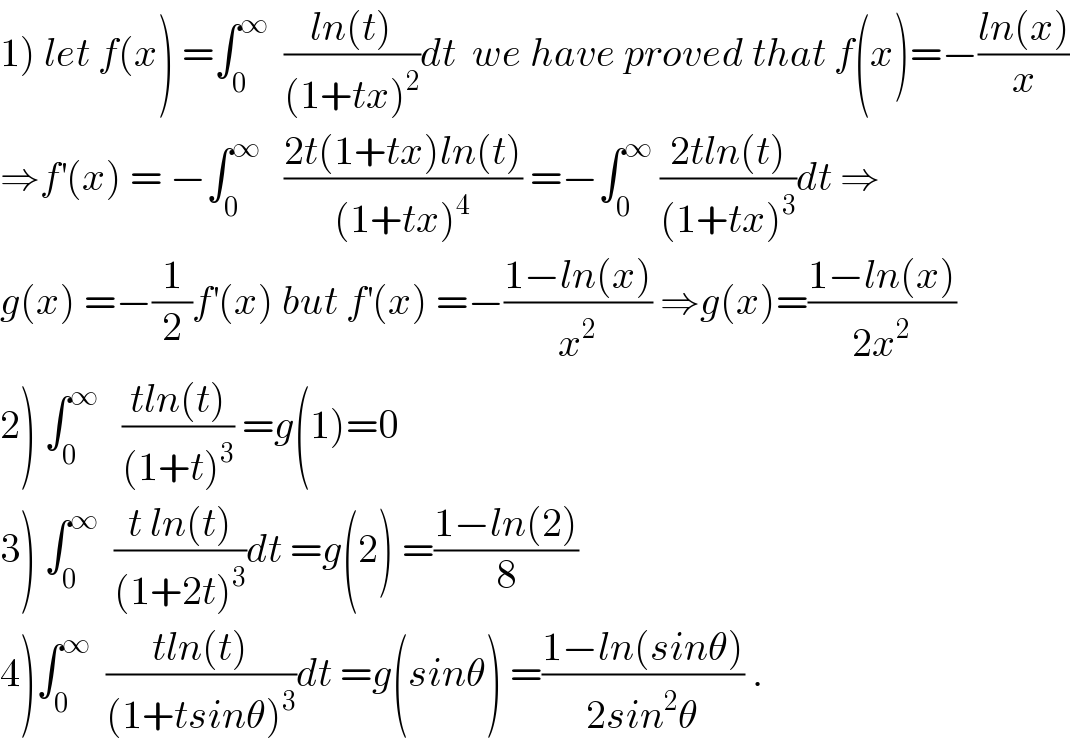
Question and Answers Forum
Question Number 44515 by maxmathsup by imad last updated on 30/Sep/18

Answered by maxmathsup by imad last updated on 02/Oct/18

| ||
Question and Answers Forum | ||
Question Number 44515 by maxmathsup by imad last updated on 30/Sep/18 | ||
 | ||
Answered by maxmathsup by imad last updated on 02/Oct/18 | ||
 | ||
| ||